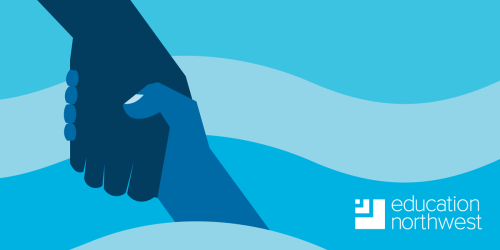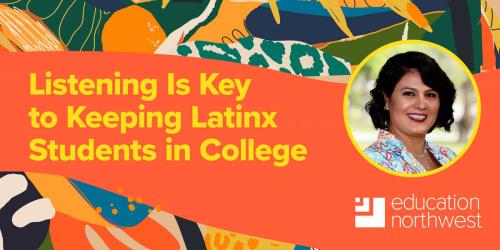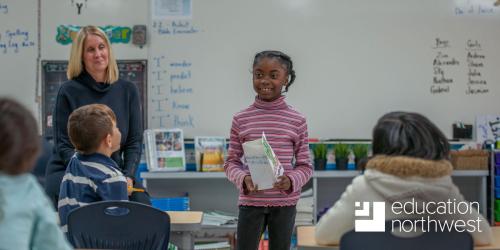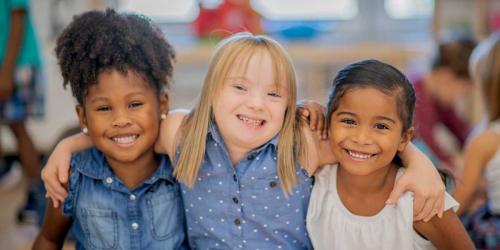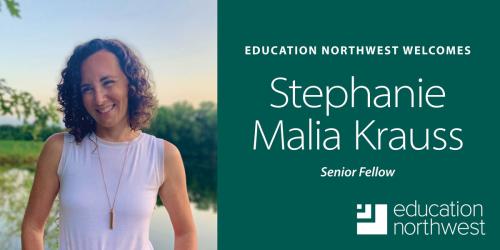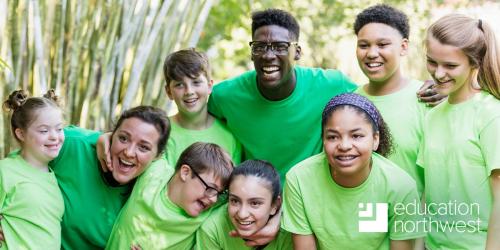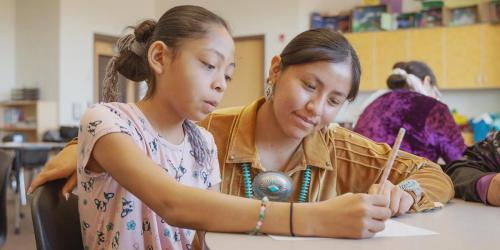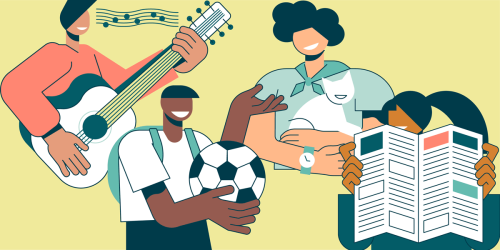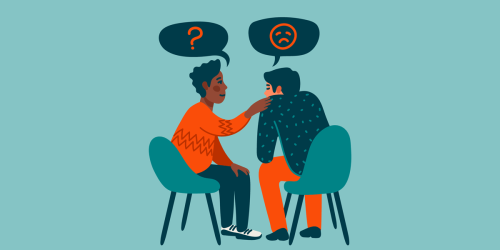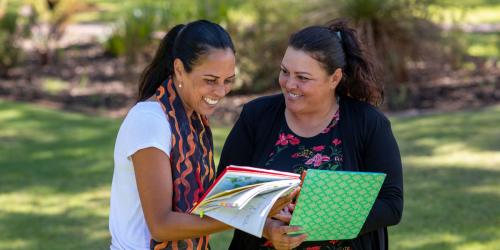Using trauma-informed practices helps create a foundation of safety and support. As students work through their own trauma, together we build a community focused on healing, resilience, growth, learning, and success.
At the College of Southern Idaho, Assistant Dean of Enrollment Services Monze Stark leads a personalized approach to retention for Latinx and other students.
It’s past time that adults take action to promote youth voice. Here are some ways to get started.
The Community Conversation Toolkit helps families, educators, and community members discuss how to make schools welcoming and inclusive to all.
Education Northwest welcomes our new senior fellow, Stephanie Krauss, who will support our work in youth development, workforce development, and alternative education.
When planning for summer programs, considering students’ full humanity, centering equity, and aiming for well-rounded programs will set students up for success.
Learn about evidence-based ways for parents to reduce their child’s anxiety around math and foster skills and resilience for math success.
Quality tutoring programs center equity, uplift student voice, involve families, equip staff and volunteers with essential skills, and use data to evaluate success. Check out these eight research-based principles to make your tutoring program more effective.
How can teachers reach all their students—including students from cultural backgrounds different from their own?
Cyberbullying, or electronic aggression, is unwanted behavior by a student or group of students that occurs through email, chat rooms, instant message, websites or social media.
Youth program partnerships can help districts and schools accomplish more than what they can do alone. How can you build your capacity to manage them?
An effective and evidence-based way to improve schools, nonprofits, and government agencies is to make decisions in partnership with those being served. This six-page resource provides an overview and tips for educators and youth workers.
Research shows that programs that support students’ development in communicating effectively, negotiating conflict, managing their emotions and behavior and other social and emotional skills can lead to better academic and life outcomes.
Here is a sampling of the research-based resources and conversations we shared on social and emotional learning.
The Alaska Statewide Mentor Project has positive effects on the retention of new teachers and student achievement. What can other states take away from what Alaska is doing?
